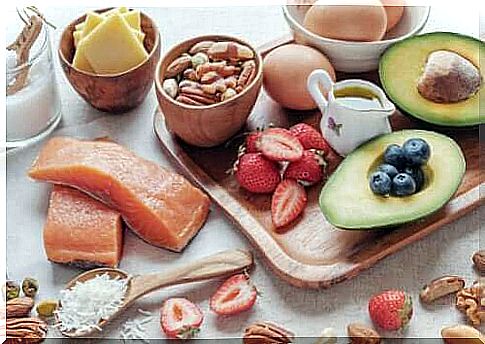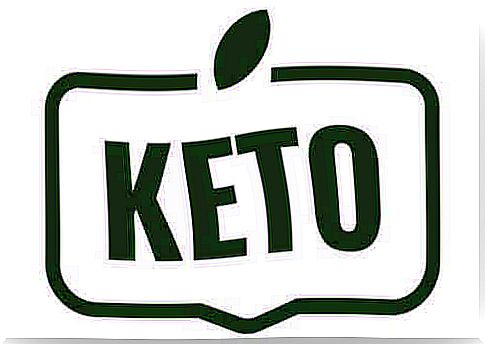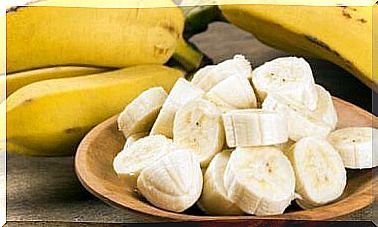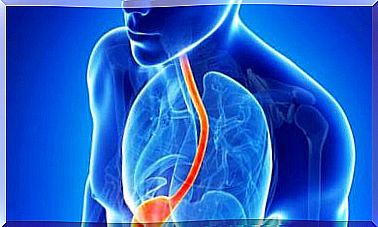List Of Approved Ketogenic Foods

People interested in the ketogenic diet also want to know what’s on the list of approved ketogenic foods. This is a meal plan that has become popular in recent years for its potential health benefits.
It helps people lose weight and also serves to reduce seizures in patients who do not respond to medication (Spanish link). In fact, experts are currently investigating whether it could be an appropriate treatment for diabetes.
This diet is based on a simple principle: limiting carbohydrate intake. Since it eliminates an entire food group, this diet is not for everyone. It is said that people who eat ketogenic can experience positive changes in body composition in a short period of time.
List of Approved Ketogenic Foods

As we mentioned above, the ketogenic diet is an eating plan that does not or hardly allows the consumption of carbohydrates. For this reason, you need to know which foods to eat regularly so that you don’t make mistakes. Discover them below.
Foods of animal origin
All animal products are approved in the keto diet, which is another name for this diet. Meat, fish and eggs are protein-rich foods that form the basis of the ketogenic food pyramid.
Ensuring proper protein intake is essential to prevent muscle catabolism, which prevents the development of sarcopenia (loss of muscle mass) in the medium and long term.
Scientific evidence suggests that people should consume more than 0.8 grams of protein per kilogram of weight per day, which is the minimum set by the World Health Organization.
You have to be careful how you prepare the food. It is best to always cook them on the grill, in the oven or in water. You should avoid using batter and breadcrumbs as they contain carbohydrates.
In addition, it is best not to fry food to avoid the formation of toxic waste products that could subsequently harm health. An example of this are polycyclic aromatic hydrocarbons (PAHs).
They may increase the risk of cancer, according to research published in the journal Scientific Reports . The approved ketogenic foods that are high in protein are:
- chicken and poultry
- Red meat
- whitefish
- fatty fish
- seafood
- Eggs
- dairy products with no added sugars
Vegetables
Most vegetables are low in carbohydrates. For this reason, they can be included in a ketogenic diet. However, remember not to overdo it with tubers. We must emphasize that when we talk about vegetables, we are also talking about green vegetables.
You should avoid fruits in large quantities, as their fructose content can interfere with the ketosis process (Spanish link). This is the metabolic foundation of the keto plan. It consists of producing body energy from proteins and fats instead of carbohydrates.
Proponents of this type of diet claim that fructose can increase the risk of liver disease, something recent studies seem to prove. However, more research on this is still necessary.
In addition , you should also limit the intake of legumes. This is because these foods also contain sugars that can interfere with fatty acid metabolism. The vegetables you can include in your diet include:
- cruciferous vegetables
- celery
- salad
- green beans
- onions
- Spinach
- zucchini
- paprika
- avocado
When you make these products, you should avoid preparations with batter, just like with meat. It is therefore best to roast or steam them on the grill. When cooking them, use as little water as possible to avoid losing water-soluble vitamins (Spanish link).
Fatty food
Finally , you should regularly include fatty foods in the ketogenic diet. These contain omega-3 and -6 acids that are necessary for proper functioning of the body.
The former have, among other things, the ability to modulate systemic inflammation. According to a study published in the journal American Family Physician, regular intake of these nutrients helps reduce cardiovascular risk. When it comes to fatty foods, we mean, among other things:
- vegetable oils
- avocado
- nuts
You should always consume these products raw to prevent them from eliminating or affecting their nutritional value. By exposing lipids to high temperatures, the content of trans fatty acids increases. According to scientific literature, these substances have an inflammatory potential that can be harmful to the body.
List of Approved Ketogenic Drinks
When it comes to the ketogenic diet, it is also important to pay attention to the list of approved drinks. Water is always the best option. It is best to consume it alone. However, you can occasionally opt for sparkling water.
Both coffee and tea are allowed. However, it is important not to use sugar or artificial sweeteners to avoid pancreatic stress (Spanish link). It is possible to drink them with some milk.
The ketogenic diet allows sporadic intake of small amounts of alcohol. However, experts do not support this rule, because alcoholic beverages negatively affect health in other ways.
Sample Menu of Foods from the Approved Ketogenic List

Here we offer you an example menu with 2 different options per eating moment with foods from the approved list of the ketogenic diet. You can create your own dishes and daily menus based on our suggestions.
Breakfast
- A cup of kefir with seeds and nuts.
- 2 fried eggs with 1/2 cup of raspberries.
Lunch
- Baked chicken with broccoli and bell pepper.
- Grilled salmon with asparagus and avocado.
Inbetween
- Yogurt with linseed and pineapple chunks.
- Turkey and cheese sandwiches.
Dinner
- Baked sea bass with green salad.
- Roasted pork ribs with avocado and cauliflower.
Introduce a variety of foods into the ketogenic diet
As you have read, you can plan a varied diet within the allowed food groups. When in doubt, see a dietitian. They can give you precise and individualized advice.
So remember that the ketogenic diet is not for everyone. Some people suffer from pathologies that affect their general state of health. So they cannot follow restrictive diets.









